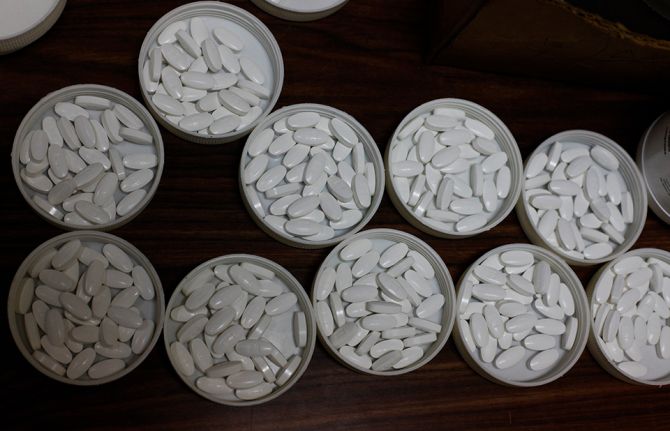

Press Statement
Interagency statement on promoting local production of medicines and other health technologies
31 May 2019 31 May 2019Low- and middle-income countries (LMICs) are becoming increasingly interested in developing the local production of quality-assured medicines and other health technologies. This is due to its potential to assist LMICs in improving access to quality-assured medicines and other health technologies, achieving universal health coverage (UHC), and reaching the health-related targets and broader developmental objectives of the Sustainable Development Goals.
The term "Local Production" can be defined in various ways. For the purposes of this statement, "local" refers to the geographical location, i.e. occurring in the country or region, and "production" — in regard to pharmaceuticals for example — refers to all activities along the pharmaceutical manufacturing value chain. Within the context of the public health agenda, promoting local production requires a holistic approach that considers policy coherence, regulatory systems strengthening, access to finance for sustainable production, a careful assessment of the business case, development of skilled human resources, access to technology for production and needs-based innovation, creation of investment incentives and other factors, to enable manufacturers to comply with international quality standards, be competitive and engage in sustainable manufacturing.
The Global Strategy and Plan of Action on Public Health Innovation and Intellectual Property, adopted at the 61st World Health Assembly (WHA) in 2008, cites local production and related transfer of technology as one of the elements to promote innovation, build capacity and improve access. More recently, at the 71st WHA in May 2018, Member States highlighted the importance of local production in the context of the global shortage of, and access to, medicines and vaccines.
A number of international organizations have also expressed their desire to source quality-assured medical products closer to the point of use. The pull effect of significant market opportunities can be a major factor in driving progress, particularly when aligned with partnerships in supporting the development of the industry and health workforce.
Strengthening local production is a cross-cutting endeavour. Sustainable local production requires effective multisectoral collaboration in order to promote enabling investment, legal and technical environments. In many LMICs, the capacity of both local manufacturers to produce and supply quality medical products and the national regulatory authority to ensure quality, efficacy and safety is insufficient. Any supply of medical products — both through local production and imports — should go hand in hand with the strengthening of regulatory capacities in order to achieve compliance with international GxP[1] and other quality standards. Close partnership between the international community and LMICs is essential to support countries and regions to build the capacities, institutions and industries that can sustain the progress made.
With the globalization of the pharmaceutical industry and the variety of country contexts, there is no "one-size fits-all" approach in promoting local production of quality-assured medicines and other health technologies. However, in recognition of the important role local production can play in improving access to quality-assured medical products and achieving UHC, the undersigned organizations aim to work in a collaborative, strategic and holistic manner in partnership with governments and other relevant stakeholders to strengthen local production. We are committed to contribute based on our respective organizations' expertise and mandate.
Launched in Geneva on 24 May 2019
Dr Tedros Adhanom Ghebreyesus, Director-General, WHO
Mr Li Yong, Director-General, UNIDO
Dr Mukhisa Kituyi, Secretary-General, UNCTAD
Ms Gunilla Carlsson, Executive Director, a.i., UNAIDS
Ms Henrietta H. Fore, Executive Director, UNICEF
Mr Peter Sands, Executive Director, The Global Fund
[1] Good manufacturing practices, good clinical practices, etc. ^
UNAIDS
The Joint United Nations Programme on HIV/AIDS (UNAIDS) leads and inspires the world to achieve its shared vision of zero new HIV infections, zero discrimination and zero AIDS-related deaths. UNAIDS unites the efforts of 11 UN organizations—UNHCR, UNICEF, WFP, UNDP, UNFPA, UNODC, UN Women, ILO, UNESCO, WHO and the World Bank—and works closely with global and national partners towards ending the AIDS epidemic by 2030 as part of the Sustainable Development Goals. Learn more at unaids.org and connect with us on Facebook, Twitter, Instagram and YouTube.
